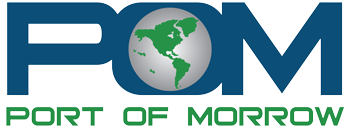Settlement Directs $1.9 Million of Port Fine to Local Safe Drinking Water Projects
The Port of Morrow Commission approved today a settlement with the Department of Environmental Quality (DEQ) that directs a large portion of its DEQ fine to support safe drinking water efforts in the Lower Umatilla Basin.
“The Port has promised to be a community partner in solving this regional problem,” says Joe Taylor, president of the Port Commission. “With DEQ’s agreement, the community will be the beneficiary from a large portion of our fine.”
The Port will pay a $2.4 million fine for exceeding its DEQ Water Pollution Control Facilities permit. $1.9 million of the fine will go toward community safe water projects. Oregon law permits 80 percent of penalties to go to DEQ-approved remedial projects. The Port is entering into an agreement with the Oregon Health Authority to manage these funds.
The agreement calls for a strict compliance schedule for winter wastewater land application until the Port’s wastewater treatment improvements are in place in mid-2025.
“We appreciate the problem-solving approach by DEQ to this longstanding regional issue,” says Lisa Mittelsdorf, the Port’s executive director. “While the Port’s contribution to the overall problem is relatively small, it’s important for the Port to be an active partner in a regional solution.”
The Port is pursuing a $432 million federal loan to increase treatment of industrial wastewater. The project includes adding substantial wastewater storage capacity, installing three anaerobic digesters for primary treatment, constructing secondary wastewater treatment systems to reduce nitrogen levels in wastewater, cleaning existing wastewater ponds, replacing wastewater distribution infrastructure, and increasing land application capacity. The loan would come from the federal Environmental Protection Agency under the Water Infrastructure Finance and Innovation Act, commonly known as WIFIA. The act was approved by Congress in 2014 to help local communities undertake large water and wastewater projects. The Port will be responsible for payment of the loan with funding from utility user fees. Construction has started on the project.
“In the short term until our secondary treatment system is operational, we will be asking our industrial partners to conserve winter wastewater releases to the Port,” Mittelsdorf said. “Our industry and farming partners have been instrumental in assisting the Port to find a long-term regional solution.”
